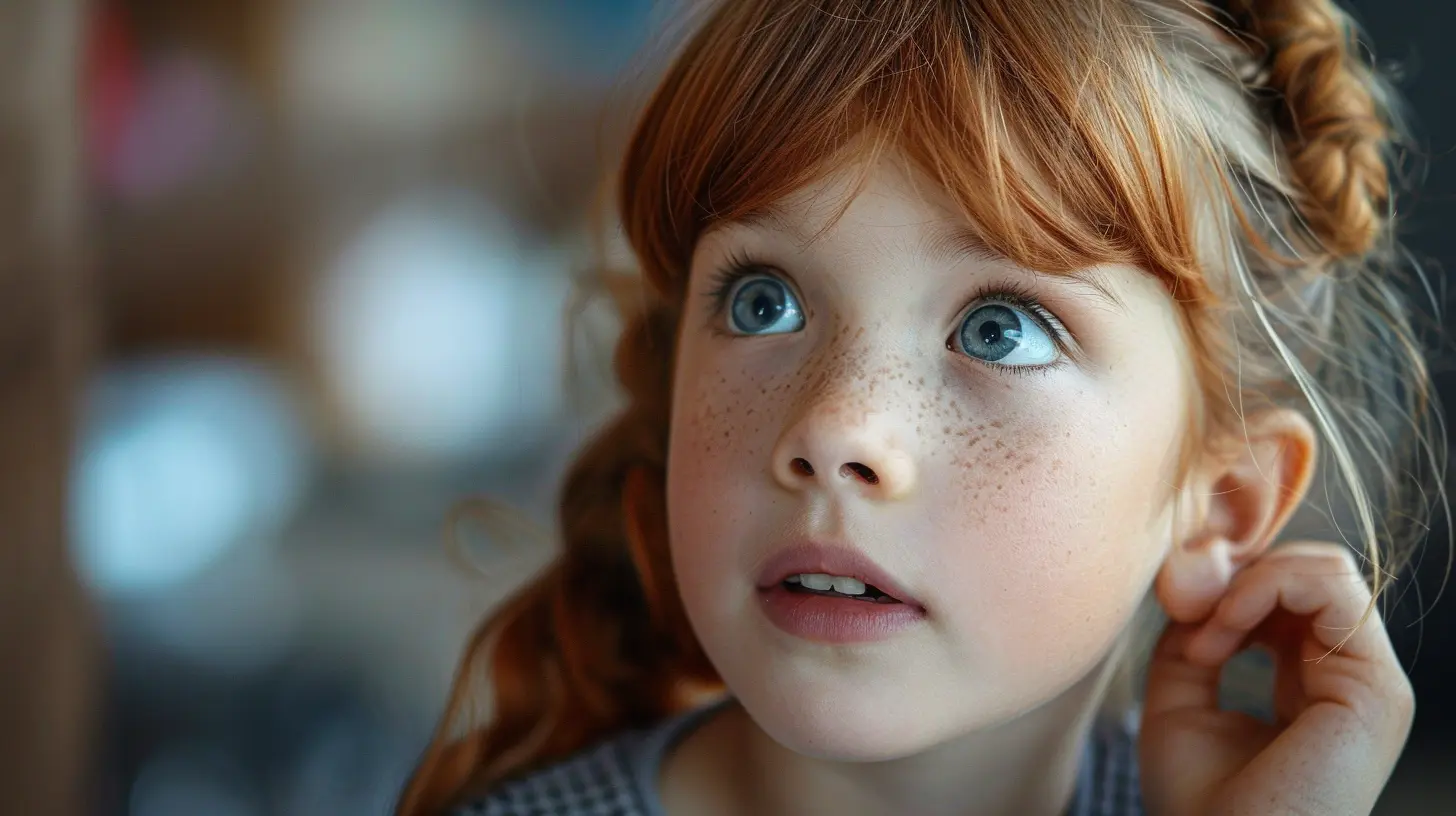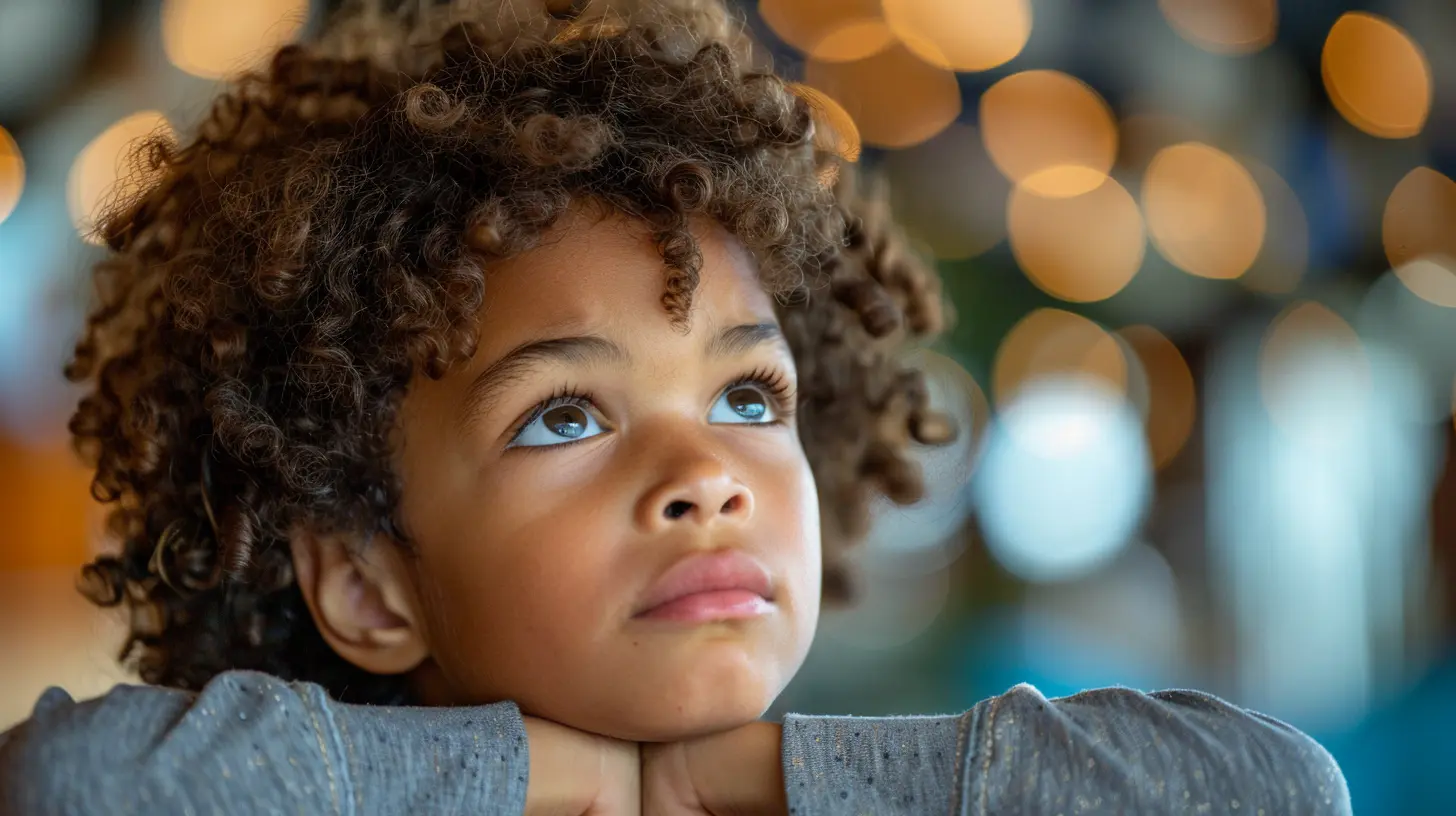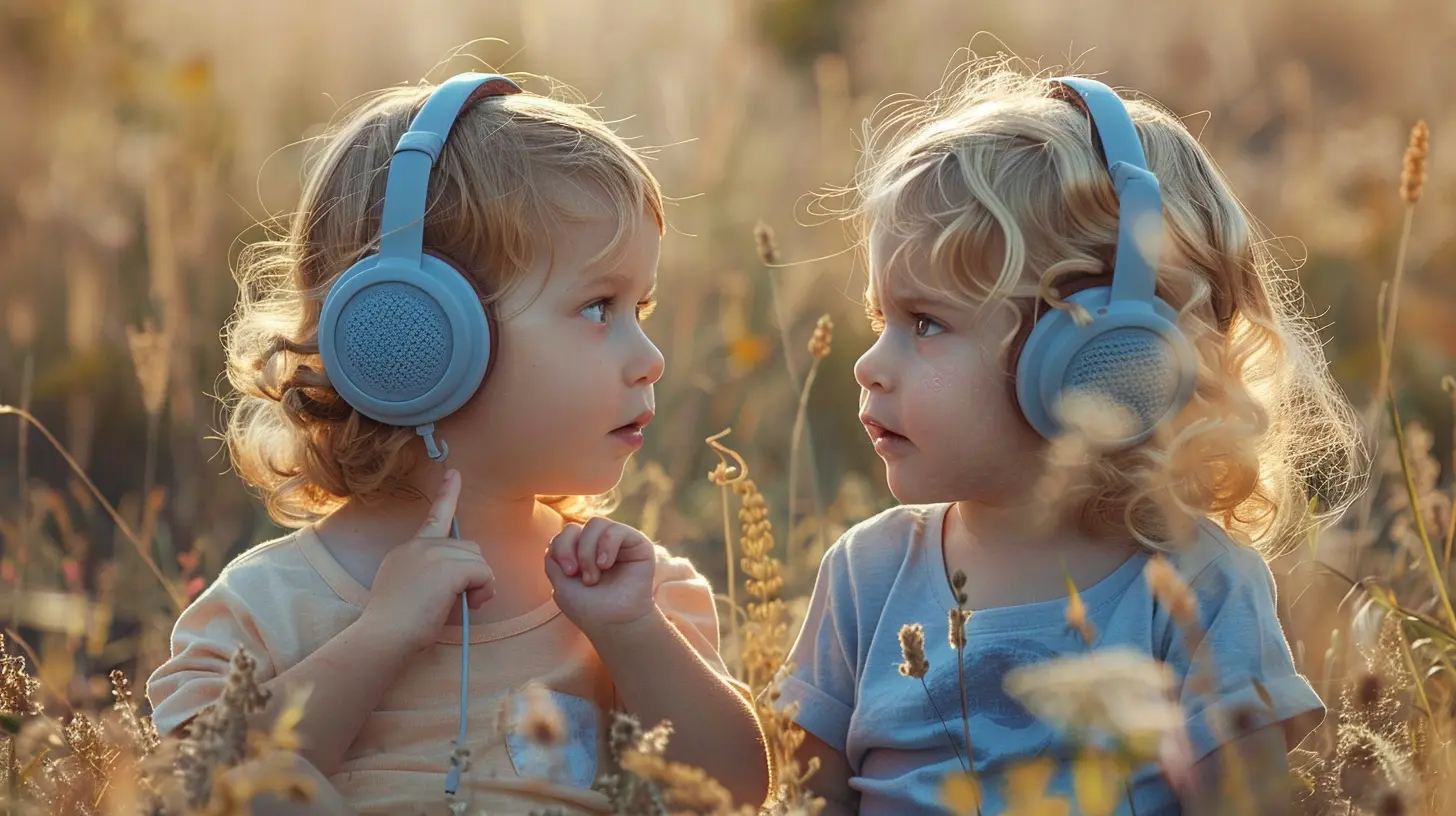Mindful Listening: Helping Children Feel Heard
20 November 2025
Let’s be honest—parenting can sometimes feel like juggling flaming swords while walking a tightrope. With everything going on—work, house chores, errands, and more—it’s easy to let our children's voices blend into the background noise. But here’s the truth: kids don’t just want to be heard; they need to be heard. That’s where mindful listening comes into play.
Mindful listening isn't just another buzzword tossed around in parenting blogs. It's a heartfelt practice that can make a world of difference in how children grow, communicate, and relate to others. When we truly listen to our children, we show them that they matter. And that validation? It's a foundation stone for their emotional development.
So, if you’re ready to slow down and really tune in, this guide is for you. Let’s chat about what mindful listening really means, why it matters, and how you can make it a natural part of your everyday parenting. Ready? Let’s dive in.
What Is Mindful Listening Anyway?
Mindful listening is exactly what it sounds like—being fully present and engaged when your child is talking to you. It means putting away distractions, shutting down your mental to-do list, and giving them your full attention. You're not just hearing the words; you're also picking up on the emotions, the pauses, the tone—all those subtle details that show what's really going on.Think of it this way: if your child is sharing their day and you’re half-scrolling through your phone, it’s like trying to read a book in a foreign language while watching TV at full volume. Something’s gonna get lost in translation. Kids notice when we’re only half-listening, and that sends a pretty clear (and unfortunate) message: “What you're saying isn't that important.”

Why Is Mindful Listening So Important?
Now, you might be wondering, “Is it really that big of a deal?” Oh, it sure is.Here are just a few reasons why mindful listening is a game-changer:
- Builds Self-Esteem: When kids feel listened to, they feel valued. And when they feel valued, their confidence gets a major boost.
- Strengthens Your Bond: Think of mindful listening as emotional glue. It deepens your connection by showing your child you genuinely care.
- Improves Behavior: Kids who feel heard are less likely to act out. Often, misbehavior is just a cry for attention anyway.
- Encourages Better Communication: Children learn communication skills by watching you. If you listen well, they will too.
Pretty powerful stuff, right?
The Everyday Challenges of Listening
Before we jump into the “how,” let’s be real about the struggles. Life is busy, parenting is messy, and nobody’s perfect. Sometimes, it feels like your kid has a sixth sense—they start spilling their heart right when dinner's burning or the baby starts crying.And let’s not ignore the mental overload. Ever found yourself nodding in agreement while totally zoning out? Yep, we’ve all been there.
But here’s the good news: mindful listening doesn’t require perfection. It just requires intention. So give yourself some grace and aim for progress, not perfection.
Practicing Mindful Listening in Real Life
Alright, time to turn ideas into action! Let’s break down how you can start practicing mindful listening today—even in the middle of chaos.1. Put Away the Distractions
Phones off. TV muted. Laptop closed. Seems obvious, right? But you’d be surprised how often we try to multitask while our kids are talking. Even glancing at your phone sends a message: "Something else is more important than you.”Make it a habit to look into their eyes. Nod, smile, engage. It sounds small, but it’s mighty.
2. Get on Their Level
Literally and emotionally.If your child is small, kneel down or sit beside them when they’re talking. That simple action shifts the dynamic and tells them, "I'm here. I’m listening." It makes them feel seen—like they truly matter.
3. Let Them Finish... Even If It Takes Forever
Kids don’t always get to the point quickly. And let’s face it—some stories feel like they’ll never end. But resist the urge to interrupt or correct them mid-sentence. Give them space to express themselves fully. This teaches patience, strengthens their narrative skills, and shows respect.Besides, the winding path often leads to hidden gems.
4. Reflect Back What You Hear
Ever heard of “active listening”? It’s a technique where you repeat back what the other person said to show understanding.For example:
- Child: “I didn’t get picked for the game today.”
- You: “Sounds like you were really disappointed about not being chosen.”
Doing this helps your child feel like their feelings are valid—and that you're truly paying attention.
5. Watch Your Body Language
Your face and posture often speak louder than your words.Are your arms crossed? Are you checking your watch? Kids are astoundingly intuitive. Show openness with relaxed shoulders, a gentle tone, and eye contact. Even your body can whisper, “I’m here for you.”
6. Ask Thoughtful Questions
Sometimes, a little prodding can encourage deeper conversations.Instead of “How was school?” ask:
- “What made you laugh today?”
- “Was there anything that made you feel frustrated?”
These kinds of questions invite more than a shrug and a “fine.”
7. Know When to Stay Silent
It’s tempting to jump in with advice or point out what went wrong. But sometimes, kids just want a listening ear—not a life lesson. Silence can be golden. Let them own their feelings and experiences. Your job is to hold space.What Mindful Listening Teaches Your Child
You may not realize it, but every time you practice mindful listening, you’re modeling something incredibly powerful. You're showing your child how to:- Understand emotions (their own and others’)
- Communicate clearly and respectfully
- Handle conflict with empathy
- Build healthy relationships
In short, you're giving them emotional tools they'll carry into every corner of their lives—from friendships to careers to their own parenting journey one day.
The Ripple Effect: How It Impacts the Whole Family
Mindful listening isn’t just about the child-parent relationship. The benefits spill over into your entire household.You’ll notice:
- Less yelling and more talking
- Fewer misunderstandings
- A calmer, more connected vibe overall
And bonus: when you start listening more mindfully, your kids might start returning the favor. Imagine your four-year-old actually listening to you the first time you ask them to pick up their shoes. It’s not a guarantee, but hey, we can dream, right?
Common Pitfalls (And How to Avoid Them)
Even with the best intentions, we sometimes fall into traps. Here are a few to watch out for:⛔ Multitasking While Listening
Guilty as charged? Yep, we all are. Next time, try saying, “I really want to hear about this. Can I finish this one thing and then give you my full attention?” That way, they know they're important—and you’re being honest.⛔ Listening to Solve, Not to Support
Not every story needs a solution. Sometimes, your child just wants to vent. Ask, “Do you want advice or do you just want me to listen?” It’s a simple question—and trust me, it works wonders.⛔ Dismissing Their Feelings
Saying things like “That’s nothing to cry about” or “It’s not a big deal” might feel harmless. But to them? It undermines their experience. Instead, try phrases like “That sounds tough” or “I can see why you'd feel that way.”Building a Listening Routine
Want to make mindful listening a daily habit? Here are a few easy ways to build it into your routine:- Car rides are golden opportunities—no distractions, just you and your child.
- Bedtime is perfect for deep talks. Something about the end of the day makes kids open up.
- Meal times can be conversation-central. Make it a no-device zone and get talking.
Consistency is key. When your child knows they have space to talk, they’ll start using it more often.
Final Thoughts: Listening is Love in Action
At its core, mindful listening is about showing up. It’s saying, “I see you. I hear you. You matter.” And what kid doesn’t want to feel that?Our kids won’t always remember exactly what we said—but they’ll always remember how we made them feel. And when they feel truly heard, they flourish.
So let’s make a promise—not to be perfect listeners, but to be present ones. Just imagine what a difference that can make—today, tomorrow, and far into the future.
all images in this post were generated using AI tools
Category:
Emotional IntelligenceAuthor:

Zelda Gill
Discussion
rate this article
1 comments
Edward Powell
This article beautifully highlights the importance of mindful listening in parenting. It's fascinating how simply being present can transform a child's experience. I'm eager to explore practical techniques for enhancing our listening skills and fostering deeper connections with our kids. Thank you for sharing!
November 29, 2025 at 5:58 AM

Zelda Gill
Thank you for your thoughtful comment! I'm glad you found the article helpful. Mindful listening truly can transform parenting, and I'm excited for you to explore the techniques discussed. Happy listening!


